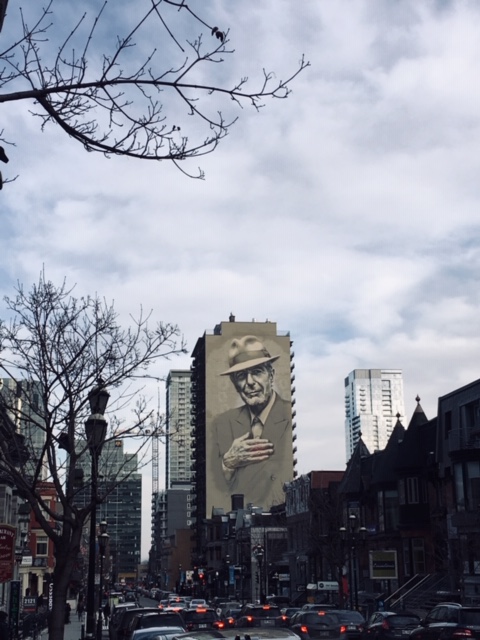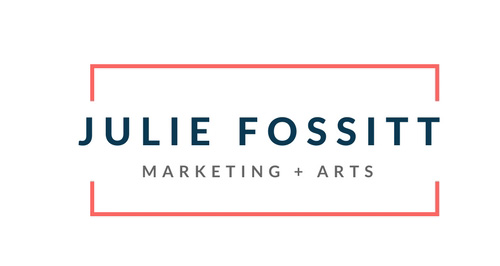This is the fourth post in a series for my final portfolio assignment for the Banff Centre Cultural Leadership program. I wrote this immediately following the Canadian Arts Summit in Montreal, April 2019. Provocative writing? Nostalgic drivel? Career suicide? Only time will tell…
April 14, 2035
It was exactly 16 years ago this week that you returned to Montreal. You fell in love with the idea of the city when you read Leonard Cohen’s Beautiful Losers, and in 2019 saw that magnificent piece of public art peeking through the windows at Musee des Beaux Arts. You had tried a number of times to be accepted as a Fellow to the Canadian Arts Summit – this was now your chance! You wore a black dress on the train and hopped out of a cab feeling anxious. The Summit started off oddly as you couldn’t find the room and then sat in a crafting space trying to impress your colleagues with broken French and learning how to network with fancy people. You didn’t get to see any of the ‘fancy’ people at the Summit that day, but you did get to walk through the gallery in the evening, sneaking behind the security guard to bask in the glow of that Basquiat in silence.
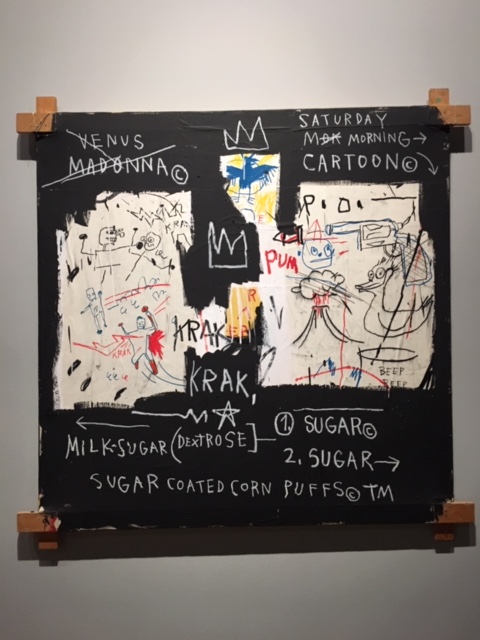
You ended up knowing a few people at the reception, so felt a little less awkward, even though your face steamed with sweat, your shiny cheeks reflected in the group photo.
You raced out into the cool air and slowed down with a stroll past Holts and the Ritz on Sherbrooke Street, a walk that you have done hundreds of times more than 20 years ago when you lived on rue Côte-des-Neiges and walked to the music school every day, a trombone strapped to your back.
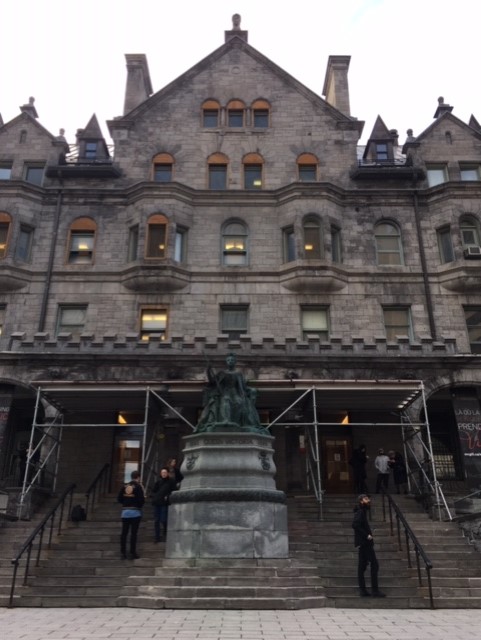
You walked into the McGill music building with your heels and handbag, and choked on the remembrance of the smell of the dusty carpet, the sight of the knock-off French café poster, and the cracked tile that covered every floor. You raced up to the very top floor and squeezed out some silent tears when you saw the tiny wooden trombone on the sixth floor door.
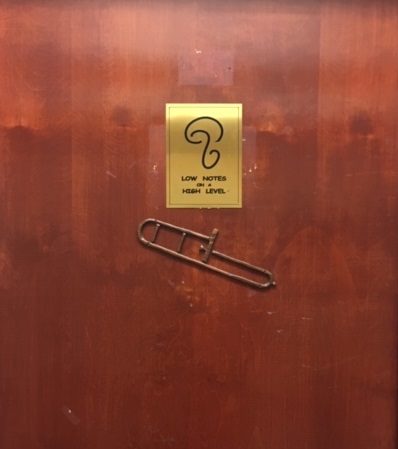
You didn’t belong in the school then, and you didn’t belong there 20 years later. But, you had memories of love and happiness from the days (and days) of practicing the chromatic passages from William Tell Overture while sipping beer with friends from the mini fridge in the trombone studio.
That was a long time ago and even in 2019 your value of excellence in the arts had dramatically changed since those tipsy days with your trombone. The significance of perfection in reproducing someone else’s work didn’t seem that important to you anymore.
The next day you sat in a dark theatre and despite the early morning start, none of the Summit attendees could bring their coffees into the theatre. The coffee machines that were on display cost $4995, as the server kindly shared the price along with the features of the machine, and you tried to calculate how many lattes you would have to make over your lifetime to justify that expenditure.
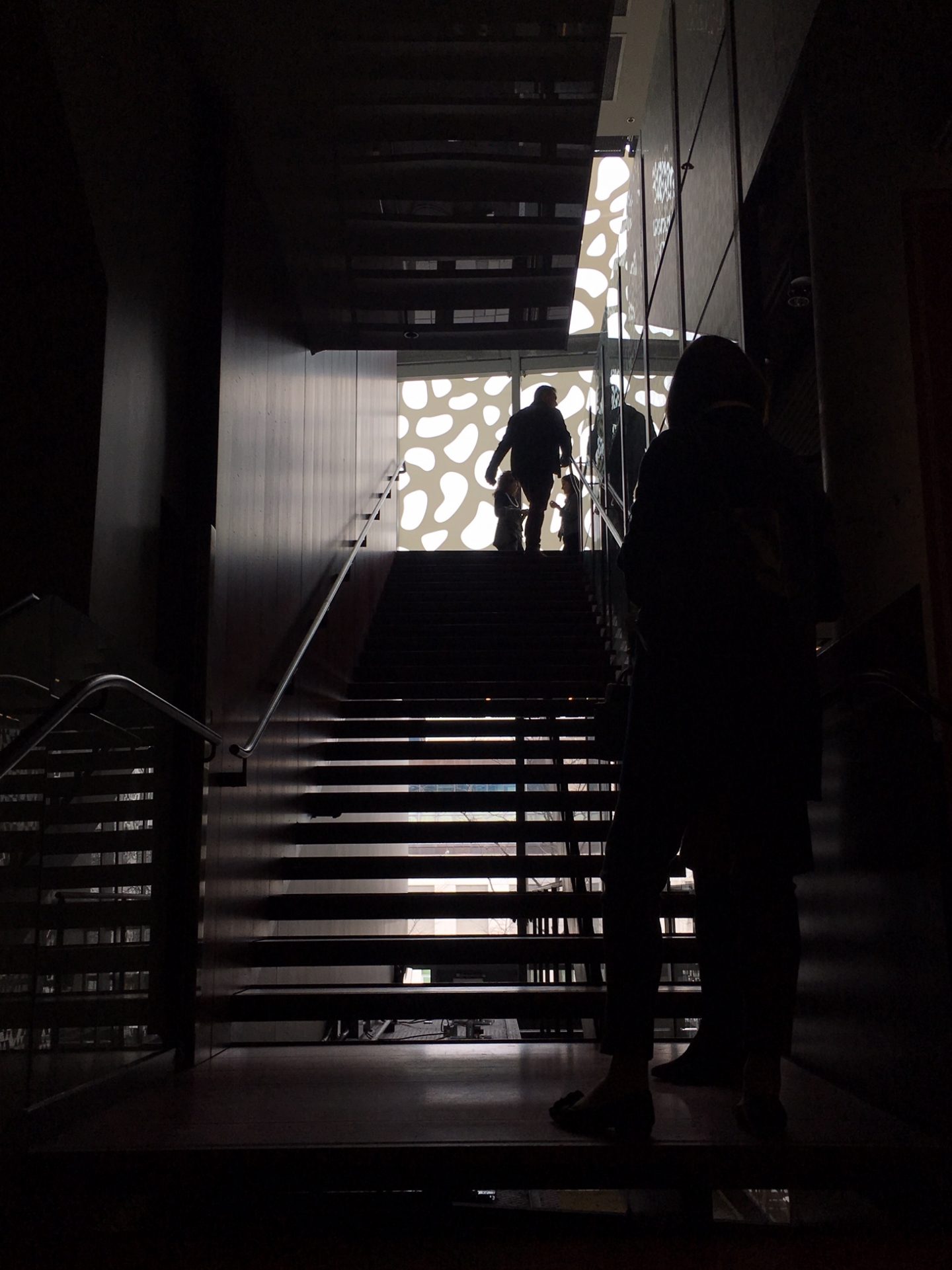
That day in the dark was a confusing mix of those promoting themselves and their work while many of your colleagues were squeezed into seats and struggling to understand the slurpy translation through puffy headphones. Your notes from your journal that day show some sketchy French phrases and a quote from Nadine St-Louis who powerfully stated, “if we lose our indigenous culture, there is nowhere else to go to find it.” She was definitely the highlight of that day.
It was a lot cooler then in mid-April than it is now. A lot of those leaders were doing a lot of talking and some listening, but not demonstrating a lot of action. Climate change was only mentioned twice, but in retrospect, that should have been an overarching theme, since every year it’s getting hotter and hotter. I still remember the site of those lunches in garbage cans in the brand new theatre, and wondering about the ecological footprint from the event.
You had dreams when you were younger, and you applied to that conference three times. Each year you were rejected, and even though you asked for feedback on your application, you never received any so you weren’t sure how to change yourself. You were suddenly living out your Beautiful Loser dream, and it was finally your chance to go and stir up some shit! But, you kept quiet and tried to keep the fidgeting to a minimum.
Most of those leaders have now since retired – many of their institutions have closed since they weren’t sustainable to operate. Our leaders today are closing institutions that don’t listen to the communities, those that can’t welcome people of different abilities, those that negatively impact the environment and those would couldn’t – or wouldn’t – do the heavy lifting towards decolonization.
You asked that group of leaders at that table in the last Summit session how income disparity was benefitting their respective arts organizations, and despite repeating the question, they couldn’t understand what you were talking about. They couldn’t grasp the statement – the assertion – that this system helped their arts organization thrive. You wanted to run up on stage and get everyone to fill in their feedback surveys right then. You pumped your fists under the table and wanted to shout, “Hey, let me help to organize the next Summit! I will fight to open the doors to this discussion and invite people who aren’t in the room!”. Instead you sat quietly waiting for your chance to slip out and breathe in the fresh Saturday air and exhale your chaotic nervousness.
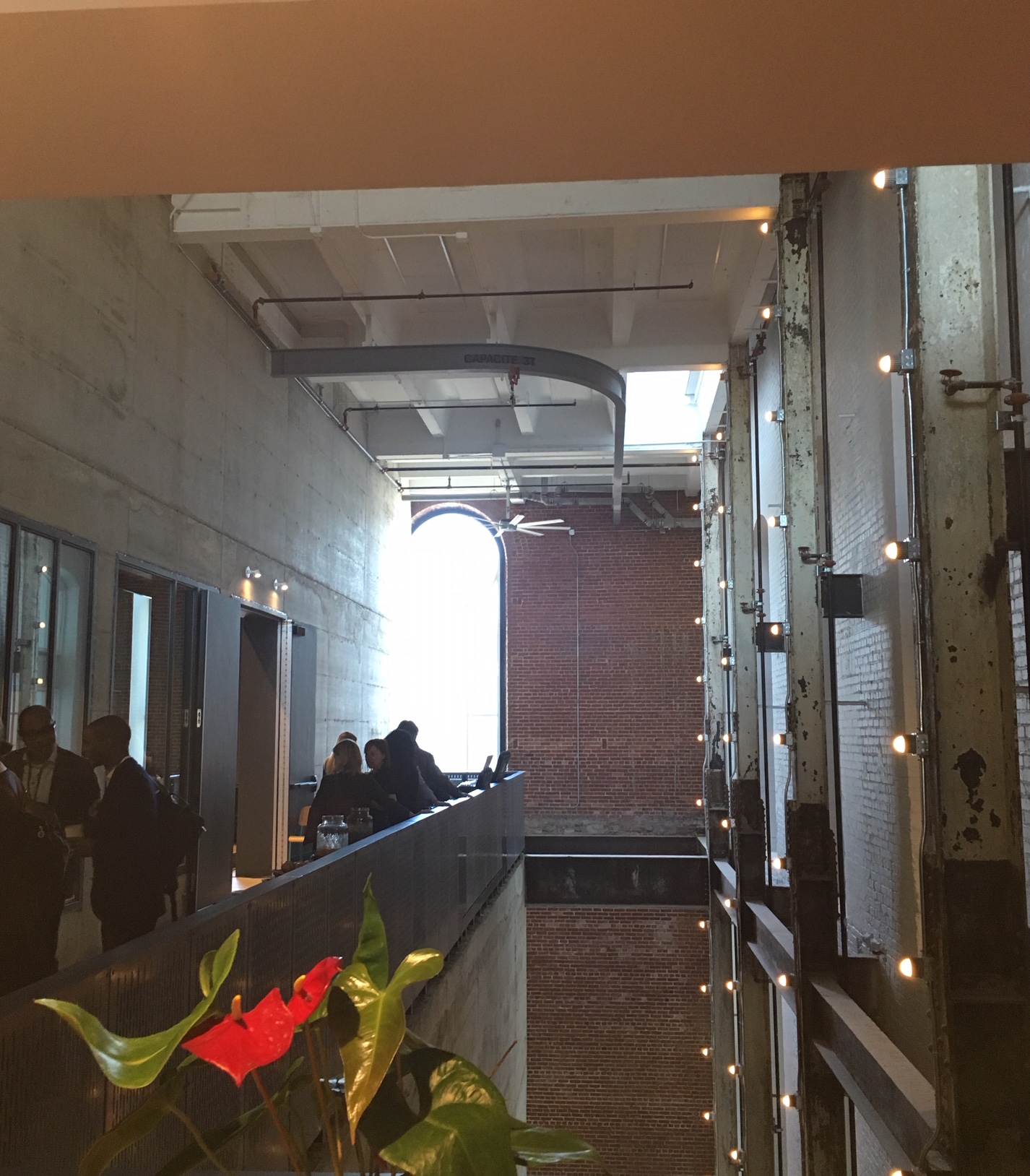
When you took over the conference organization eight years ago, you decided to scrap it altogether. The group now has virtual chat and uses the sponsor funds to fund arts programs in rural communities throughout the country. The KPIs were, all of a sudden, easy to measure.
The photo of that trombone studio door is still tucked in your wallet to remember where you started and why you need to remember the privilege you have that got you to Montreal that week 16 years ago. And as Cohen wrote his influential book, Beautiful Losers, “my interest in this pack of failures betrays my character”.
